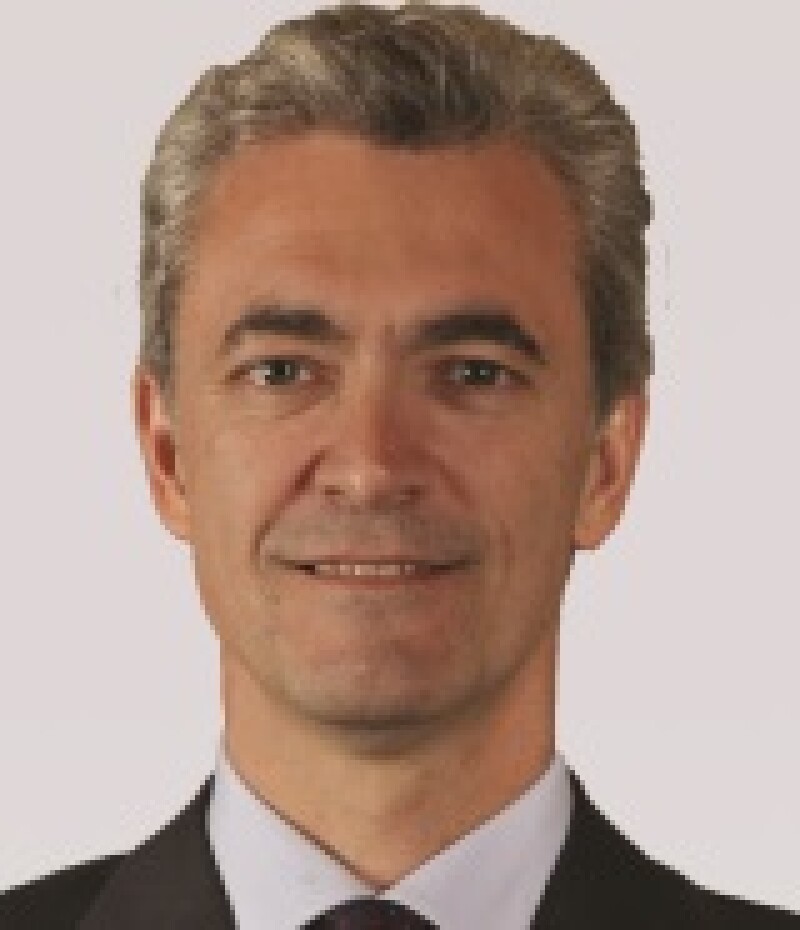Banking in central and eastern Europe is at a “unique transformation moment”, according to UniCredit’s new regional head.

|
It is difficult to understand the CEE market without being present across the region Carlo Vivaldi, |
“Many international banks are looking to either exit markets or deleverage, which is creating opportunities for a redistribution of assets and a rebalancing of banks’ presence in the region,” says Carlo Vivaldi, who took over the division from Gianni Franco Papa in February after the latter was moved to head UniCredit’s investment banking arm.
Vivaldi adds that the Italian lender is well placed to take advantage of this shift. “We are not in a position where we need to deleverage,” he says. “We are well-capitalized and ready to grow organically, and we are also ready to evaluate external growth opportunities as they arise.”
This enthusiasm for outright acquisitions marks a change in emphasis for UniCredit, which has not bought a whole bank since the expensive and ill-fated purchases in 2007 of Kazakhstan’s ATF Bank and Ukraine’s Ukrsotsbank. ATF was sold at a $1.6 billion loss in 2013 while UniCredit’s merged Ukrainian operation is in the red and up for sale.
Right to buy
Vivaldi cites the Czech Republic, Slovakia and Turkey – where he previously spent four years as country head and deputy CEO of number-four lender Yapi Kredi, UniCredit’s joint venture with Koc Group – as the markets with the greatest potential for acquisition.
“Turkey has been going through heavy regulatory change, mainly affecting the consumer lending side, so we are trying to rebalance our business mix away from that and towards the small business segment,” he says. “However, banks with the right scale can still serve the consumer market, so there will likely be some consolidation in the next 12 to 24 months.”
Vivaldi declines to be drawn on individual assets but market reports suggest that options in the Czech market could include General Electric’s GE Money Bank, while HSBC is expected to put all or part of its Turkish operation up for sale.
UniCredit would also look at “selective portfolio opportunities” elsewhere in its 15-country CEE network, Vivaldi adds. The Italian lender has made several purchases of this kind in recent years. It took over part of Axa’s business in Czech Republic and Slovakia when the French group exited the region in 2013 and bought RBS’s corporate portfolio in Romania last August.
One market in which UniCredit will not be expanding is Russia, where the bank has adopted what Vivaldi calls a “maintain-and-protect strategy” in response to last year’s currency depreciation and the economic slowdown. “This means we will not try to grow our market share and we will try as far as possible to keep our exposure in line with that of year-end 2014,” he says.
|
Growth and the potential for growth remain higher Carlo Vivaldi |
With assets of R1.36 trillion ($27.3 billion), UniCredit is among the 10 largest lenders in Russia, and until last year the market was a big profit generator for the group. In 2013, its Russian subsidiary posted a pre-tax result of €706 million, equivalent to 42.5% of the total for the CEE network. That fell to €448 million in 2014 due to the rouble’s decline and a substantial increase in provisioning. UniCredit Russia’s cost of risk doubled to 112 basis points in the 12 months to the end of March.
Vivaldi says UniCredit’s traditional focus on the corporate market in Russia has insulated it from the worst effects of the end of the consumer boom and rising unemployment. He notes, however, that within that segment the bank is working to rebalance away from higher-risk clients. “We will maintain our focus on large corporates while trying to be more selective with regard to mid-tier corporates and avoid growing in the small business area,” he says.
Ukraine sale
UniCredit’s Russian operation is, however, expected to remain profitable in 2015 – unlike its Ukrainian subsidiary, which Vivaldi admits is on course for another loss-making year. “GDP in Ukraine is expected to decrease by 9.3% this year, and no bank can be profitable in such an environment,” he says.
Vivaldi is, however, quick to reject suggestions that keeping the Ukrainian bank up for sale has affected client confidence. “We gave a strong signal to our customers that we want to defend our asset by increasing our capital by $500 million last year,” he says.
Vivaldi argues that a regional presence is needed for success in emerging Europe. “It is difficult to understand the CEE market without being present across the region,” he says. “There are differences between markets but there are also a lot of similarities and interconnections. A bank that entered one market only would not be able to add the same value as a truly regional bank.”
He adds that, despite lacklustre economic and banking sector performance in many CEE markets in recent years, UniCredit still sees the region as promising.
“Growth and the potential for growth remain higher than in western Europe and risk is relatively low, making for better overall profitability,” he says. “Looking ahead, we expect CEE will continue to be an engine for growth of UniCredit.”
